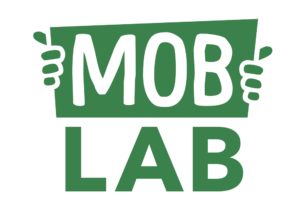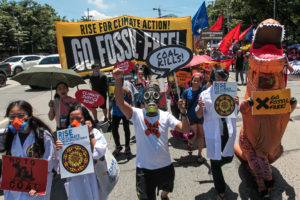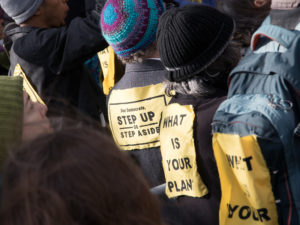Today we’re sharing a few of the stories that caught our eye, and yours, this year. Let’s try to sum it up (and then you can dive into the links):
[1] People worldwide are frustrated by inequality, governments sliding (or steamrolling) toward repression and surveillance, and systemic damage to human rights and the environment.
[2] People are building and running movements with online connections. They’re moving fast to build power, demand change and simply survive.
[3] Civil society organisations and groups are attempting to innovate and engage people in systems change at the speed needed to meet incredible challenges to the global environment, economic and political systems.
[4] Young people and frontline communities aren’t waiting for NGOs (nor should they). But sustainable change demands collaboration, partnerships and resource sharing. We have a lot to learn from 2019 and much to get done in 2020.
What we learned from movements
Movements and protests – from a global #ClimateStrike to actions on the streets of Beirut, Hong Kong, Santiago, Tehran, New Delhi, and dozens of other cities – demonstrate an evolving capacity to create powerful narratives and turn those into power – or at least organise people to take action. The next step–sustained political change that transforms systems and makes social justice common sense–is the hardest. But highly organised and connected movements based on values of equality and justice are rising.
In summing up a decade of people power (remember Occupy and the Arab Spring?), Shaazka Beyerle finds links between what’s worked, what hasn’t and how protests sustain change, hold power and transform systems. [ICNC]
Why settle for a decade’s worth of lessons? One group of researchers looked at a century of protest movements to find that lasting change often depends on engaging working people, not those with the time and power to enter the streets: “Democratization is much more likely to follow mass protest movements that are dominated by the urban middle classes — and even more so when industrial workers are protesting.” [Washington Post]
The global emergence of the Green New Deal as climate solution, system change and organising focus has been a key story of 2019. The Green New Deal has an impact in the US, writes Nathan Willcox and Carina Barnett-Loro of the Climate Advocacy Lab, because of a visionary narrative, ‘disruptive’ tactics, and a grounding in social movement research. They note that Sunrise Movement and others are building electoral and institutional capacity to carry Green New Deal beyond protests. It’s a movement that continues to grow, and give hope, around the world. [MobLab]
Want to better understand how a movement in support of the Green New Deal (and a group like Sunrise Movement) can seem to come from nowhere, organise millions and shape a global narrative? Read this profile of several Sunrise leaders, their training systems and vision [Politico] and listen to a conversation with Sunrise Movement co-founder Varshini Prakash [Change Everything podcast].
Movement and protest leadership was a focus of 2019. What many analysts describe as leaderless movements we see as, quite intentionally, leader-full. Communications, training and key tasks are distributed. Everyone’s skills are used and time is valued. The lesson for NGOs: Building leader-full organisations with staff, supporters, members and impacted communities makes movements and organisations more sustainable and able to evolve. Leader-full organisations may also have more short-term (winning campaigns) and long- term (shifting systems and power) impact. [The Atlantic and Quartz]
Meanwhile, governments are restricting internet access, limiting free speech and even outlawing forms of nonviolent protest. The CIVICUS Monitor report tells us that twice as many people live in repressed countries as a year ago. Related stories cover findings that four of 25 Asian countries are rated as closed while civic space in South Korea and Japan has narrowed [Prachatai]; civil rights are eroding in the Pacific (including Australia) [RNZ]; and Nigeria is a repressed nation. [The Whistler]
Case in point: protesters in Russia (and around the world) are rapidly shifting tactics and tools to evade growing surveillance and suppression. It’s working but we have to ask – at what cost? The need for continually changing organising tech consumes time and resources, limits access, and has become a barrier to people power that we increasingly accept as a cost of doing business. [OpenDemocracy]
NGOs, civil society groups, movements and people-powered protests are going to find it harder to organise, reach new people, and advocate for equality and social justice. Collaboration, innovation, and systems change will more important – and more difficult.
As systems collapse, people rise identifies seven faces of global movements energised by young people. Otto Scharmer, a professor of systems design at MIT Sloan School of Management, explains how shifts in the way societies talk about policy priorities (create economies that are good for all; politics that abandons left/right in favor of openly addressing systems change; and eco instead of ego) are pushing systems change forward with a focus on abundance instead of scarcity. [Thrive Global]
Listen to New Leaders
We’re struck by emerging movement models. As NGOs listen and learn from the leadership of young activists and frontline communities, they see examples of distributed leadership that centers and engages the voices of those most impacted.
Reshaping the ecosystem of social change is needed to support young feminist-led organisations. A series of conversations with leaders produced recommendations that are worth bringing into a broader conversation about movement-NGO relationships. Useful insights heron shifting access to resources, building trust between NGOs and young organisations, fostering values-driven partnerships and more. [FRIDA | The Young Feminist Fund]
Feminist is how Hanna Thomas describe the way values, leadership and technology for social change intersect at 350.org. Some call it “Agile” but, as Thomas points out, feminist, queer, anti-authoritarian and other grassroots movements have long been working in collaborative, experimental and iterative ways. [MobLab]
We spoke with Hanna Thomas in August to learn more about how 350’s approach to technology, leadership and digital is helping it lead change both inside and out. Thomas called their approach “digital critical.” Everything they do serves the act of relationship-building to support people power, not digital itself. [MobLab]
Narratives and Stories Shape Movements
Looking to ground conversations about narrative change, Narrative Initiative shared a working set of related definitions. Anat Shenker-Osorio, a communications researcher and campaign advisor, launched Brave New Words, a podcast series sharing narrative change case studies from Australia, Ireland, New Zealand and the US. A Message from the Future, narrated by US Rep Alexandria Ocasio-Cortez, presents a 7-minute vision of what a future with the Green New Deal could look like. It’s a hopeful narrative that invites people in.
Winning NGOs are redefining membership, storytelling and the organisation itself. People expect a different experience, are prepared for bigger asks, and engage with change using technology that is reshaping people power. Smart NGOs are adapting, collaborating with supporters in new ways, and testing new forms of membership. [Chronicle of Philanthropy and MobLab]
Can an NGO measure shifts in people’s mindsets that result in meaningful, long-lasting change? That’s a question that Greenpeace’s cognitive science lab, Mindworks, seeks to answer. Earlier this year we shared lessons from Mindworks efforts to test cognitive science approaches in campaigning and train cohorts of leaders and organisers around the world. [MobLab]
Tauiwi Tautoko means means non-Māori acting in support of Māori. It’s also the name of a programme created by New Zealand-based Action Station to train volunteers to engage with strangers who leave racist comments online. The goal is to produce more caring, thoughtful and informed dialogue. The result: constructive conversations can happen online but they require care, a community of support, and shared values. [MobLab]
Finally, consider this quote: We’re in an age when, for some, considering an immigrant a human being is a radical political act. At all times, and especially in a time like this, art and artists must recognise their role in stories that make sense of the world and guide people towards hard choices, bold actions and loving one another. A good read from composer, lyricist and actor Lin-Manuel Miranda. [The Atlantic]




